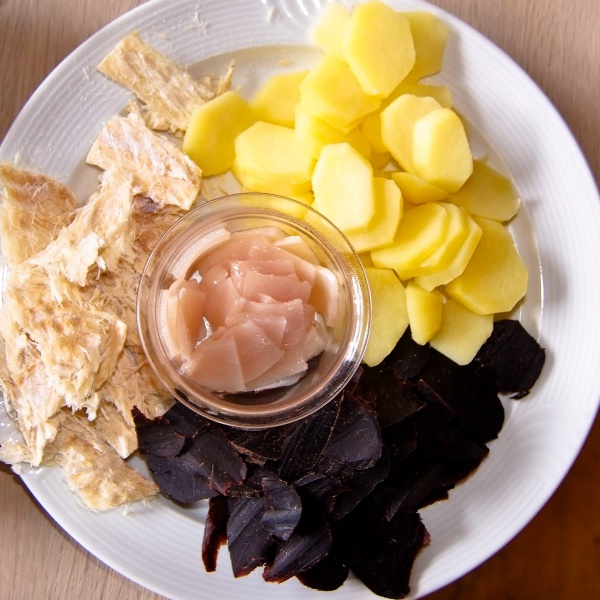Facts About Tvøst og spik
Tvøst og spik is a cherished traditional dish from the Faroe Islands, an autonomous region of Denmark located in the North Atlantic. This robust meal features Pilot Whale meat, blubber, and potatoes. The whale meat can be prepared in various ways: boiled, fried, salted, frozen, or dried. When dried, the meat is cut into long slices and hung under a roof to air dry. The blubber, meanwhile, can be boiled, salted, or dried, but it is never fried. Dried blubber is often enjoyed alongside dried fish. The whale meat has a distinctive dark, almost black color.
The practice of consuming whale meat and blubber in the Faroe Islands boasts a rich history spanning centuries. Historical documents highlight whaling as an integral part of life on these remote islands, which had limited food resources from domesticated animals, wild game, and the sea. Records of whale hunting date back to 1584, making it one of the oldest documented hunting practices. These records were initially maintained for tax purposes when the islands were under Norwegian and later Danish rule. While statistics from the period when the Gabel family governed (1642-1708) are less reliable due to sparse documentation, detailed records have been consistently kept from 1709 to the present day.
